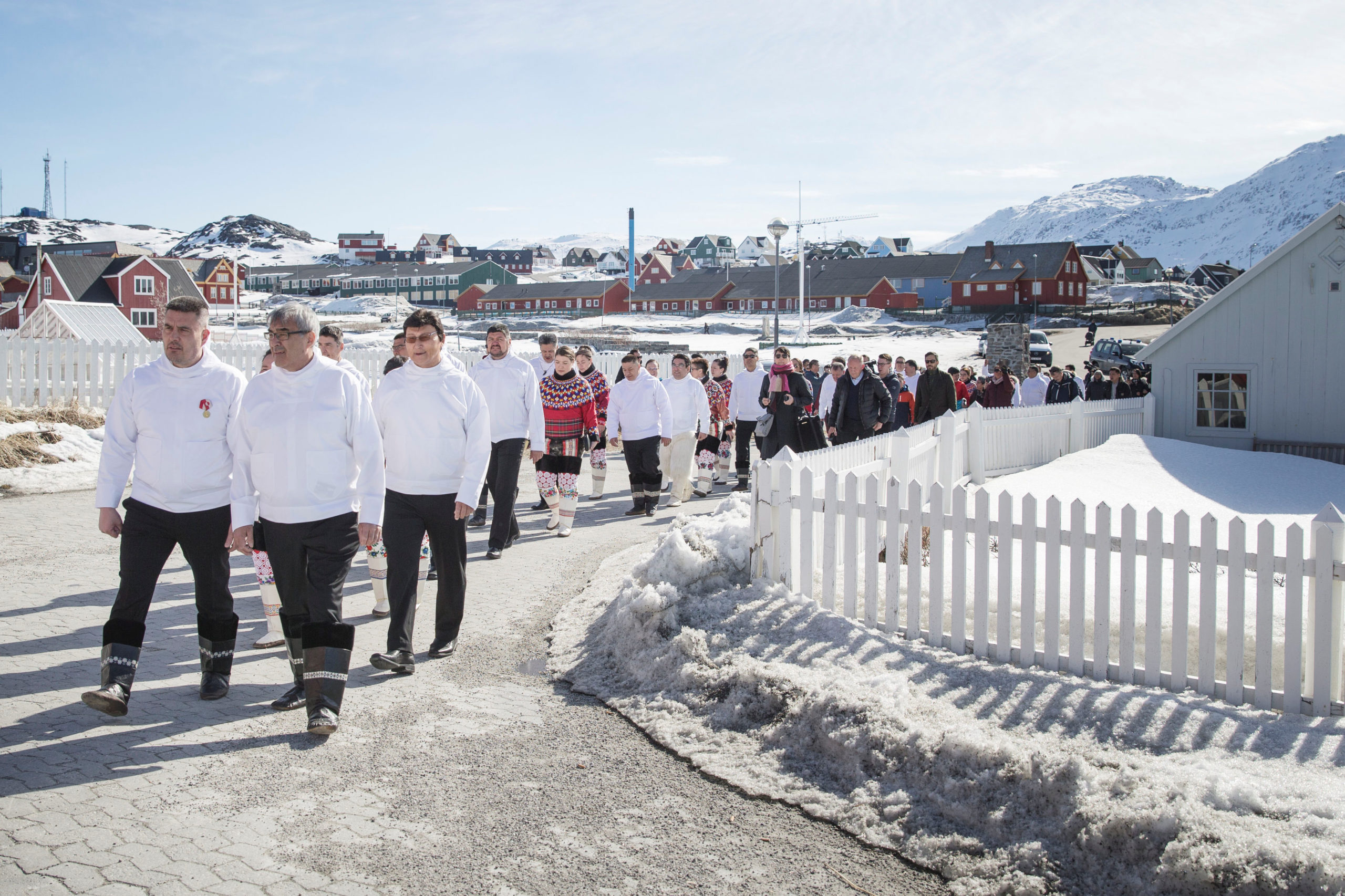Greenland’s premier loses majority ahead of new legislative session
Kim Kielsen also lost control of his party, Siumut, in November, but is said to be in talks with opposition parties to form a new coalition.

Greenland’s premier is exploring “new options” that will allow him to regain the support of a majority of members of the national assembly after a junior coalition partner withdrew on Monday.
Kim Kielsen refused calls by Demokraatit to step down and hold an early election.
“The possibility of a majority forming against us certainly exists, but we haven’t heard that a majority doesn’t have confidence in the coalition at this point,” Kielsen told the press on Monday.
Kielsen said that he hoped to gather a new coalition before Inatsisartut assembled for its winter session on February 16. Should a majority of legislators call for a vote of no confidence in Kielsen at that time, he would be forced to resign.
Kielsen avoided such a fate in October by a single vote, but has since lost the leadership of his party, Siumut, which holds the assembly’s largest bloc of legislators, and was expected to lose the premiership to the party’s new leader, Erik Jensen in the new term.
Siumut, together with the remaining party in the coalition, Nunatta Qitornai, controls 12 seats in the 31-member Inatsisartut.
[Greenland’s premier narrowly avoids a no-confidence vote]
Local media reported Kielsen is in talks with multiple parties to form a new coalition, including IA, the second-largest party in Inatsisartut, and Partii Naleraq, which controls four seats.
The decision by Jens Frederik Nielsen, the Demokraatit leader, comes amidst growing uncertainty about Siumut’s direction under the leadership of Jensen, who was voted in as the party’s leader in November, but who remains a rank-and-file member of Inatsisartut for now.
“We’ve been informed that Erik Jensen will change Siumut’s course,” Nielsen said. “Siumut is completely divided and we can never know what the party stands for. That makes it hard to trust Siumut right now, and that is why the three members of Demokraatit who sit in the cabinet have resigned.”
Most recently, that uncertainty has centered on whether Siumut remains a committed supporter of the Kuannersuit (or Kvanefjeld) rare earths and uranium mine overlooking the southern town of Narsaq.
Siumut has been a leading advocate for the mine, despite concerns about its impact on the surrounding environment and its ability to provide Greenland with the revenues the firm seeking to permission to operate it has promised. In 2013, Siumut paved the way for the mine to move forward when it led efforts to reverse Greenland’s ban on uranium mining.
However Jensen, together with Vivian Motzfeldt, a Siumut grandee who also ran against Kielsen for party’s leadership, have in recent weeks cast doubt on whether the party continues to support the mine.
In the interim, Kielsen will assume the responsibilities of the foreign and energy ministries. Vittus Qujaukitsoq, the finance minister, will adopt the responsibilities of the commerce and mining ministries.
Martha Abelsen, a veteran Siumut lawmaker, will serve as health minister.